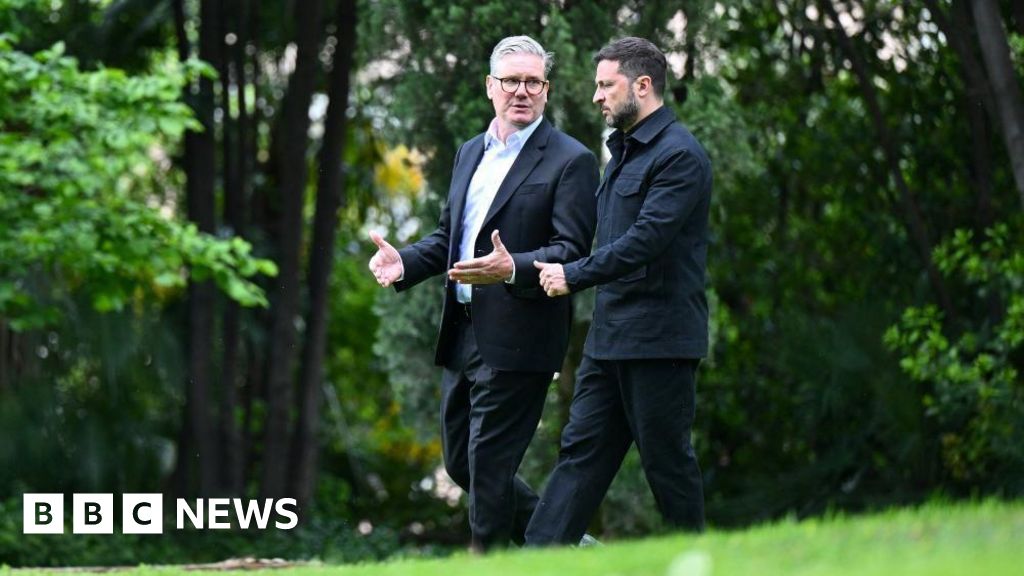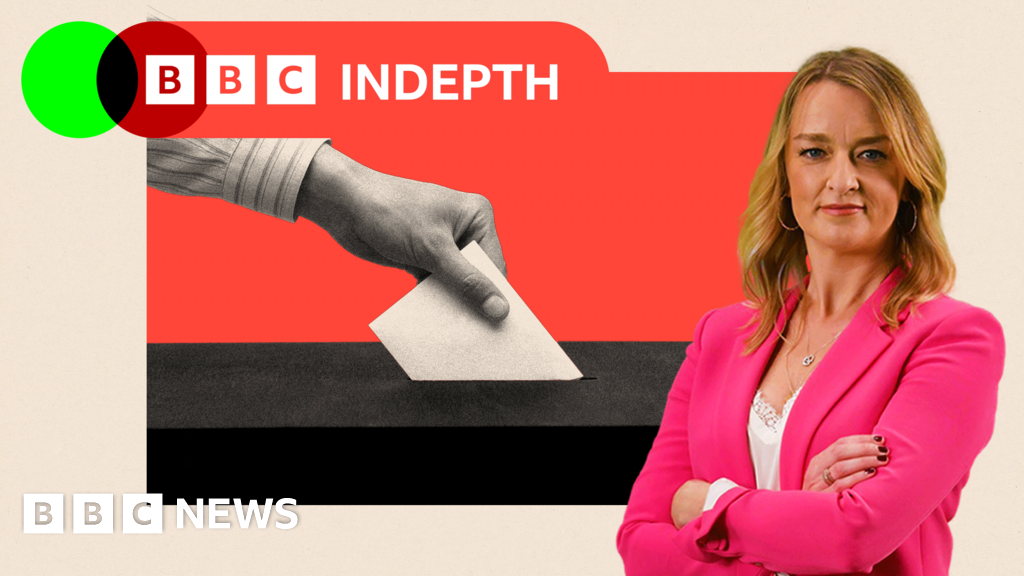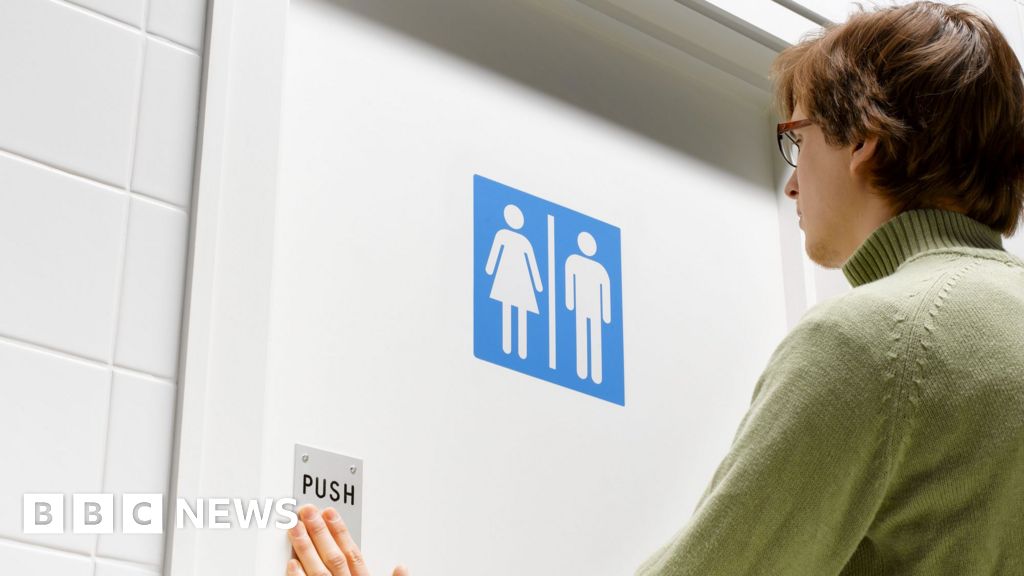ARTICLE AD BOX
By John Campbell
BBC News NI Economics & Business Editor
Image source, iStock
Image caption,Foreign Secretary Liz Truss will act as lead negotiator on Thursday for the first time since replacing Lord Frost
The UK and EU will resume talks on the Northern Ireland Protocol on Thursday.
Foreign Secretary Liz Truss will act as the UK's lead negotiator for the first time since she replaced Lord Frost.
"There is a deal to be done but it will require a pragmatic approach from the EU," she said.
The UK is seeking fundamental changes to the operation and oversight of the protocol, while the EU has offered limited changes aimed at reducing the impact on Northern Ireland businesses.
Ahead of the talks, which are being billed as a potential "reset", Ms Truss said the EU has "a clear responsibility" to fix problems.
She added that she would put forward "practical, reasonable solutions… with a view to agreeing a plan for intensive negotiations".
Image source, Pacemaker
Image caption,The Northern Ireland Protocol creates a trade border between Northern Ireland and the UK
What is the protocol?
The protocol is the Brexit deal which prevents a hard Irish border by keeping Northern Ireland inside the EU's single market for goods.
It was agreed by the EU and the UK government in October 2019.
It also creates a new trade border between Northern Ireland and the rest of the UK, something the EU accepts is causing difficulties for businesses.
Unionist parties say this 'Irish Sea border' undermines Northern Ireland's position in the UK.
What does the UK want?
The government has said the protocol is "unbalanced" which makes it practically and politically unsustainable.
The major practical impact of the protocol is that all commercial goods entering Northern Ireland from Great Britain need a customs declarations while food products are subject to additional controls and checks.
The UK has proposed an arrangement where the assumption would be that most goods entering Northern Ireland from the rest of the UK would be staying there and would not be at risk of crossing the border into Ireland and the wider EU.
A simple self-certification process would mean that most goods wouldn't need to be checked or be subject to additional paperwork.
The UK also wants to limit the role of the European Court of Justice (ECJ) in any protocol disputes.
Its preferred option is a new governance arrangement in which disputes would ultimately be resolved by an independent arbitrator.
However, the government has indicated that it is open to discussing a role for the ECJ, which could draw on other EU agreements.
Ms Truss has invited Maroš Šefčovič, the EU's chief negotiator, to Chevening, a 115-room grace-and-favour country mansion in Kent, for an overnight stay.
The grounds boast a walled kitchen garden, lake and maze.
Dinner will consist of Scottish smoked salmon, Welsh lamb and Kent apple pie.
Previously Mr Šefčovič and Lord Frost would shuttle between Brussels and London for relatively quick Friday catch-ups.
Then the Covid situation deteriorated and their talks were downgraded to virtual chats.
But the UK's new lead negotiator has markedly dumped that old format, for now.
The idea to invite the European Commission vice-president to Chevening was, I'm told, absolutely her own.
What has the EU offered?
The EU acknowledges that the protocol is causing practical difficulties in Northern Ireland.
It has proposed a package of measures, which it says will mitigate them.
They include expanded trusted trader arrangements covering more products and companies.
The EU says its new plan for food means that most products destined for Northern Ireland consumers would not need to be physically checked when arriving into Northern Ireland from Great Britain.
Image source, Reuters
Image caption,Maroš Šefčovič is the EU's chief negotiator
A grace period, during which the protocol is not being fully implemented, currently means that supermarkets do not face a full range of controls.
The EU says its proposals will go beyond this and cover more businesses.
It claims the plans would halve customs paperwork and mean physical checks on goods would be about 80% lower than typically required at an EU border.
The UK government and some Northern Ireland businesses are sceptical about those numbers.
In December the EU also published a proposal which it said would guarantee the long-term supply of medicines from Great Britain to Northern Ireland.
The EU has been reluctant to engage on the issue of the ECJ, emphasising that it must be the ultimate arbiter of EU law.
What about Article 16?
Article 16 of the protocol sets out the process for taking unilateral "safeguard" measures if either the EU or UK concludes that the deal is leading to serious practical problems or causing diversion of trade.
Those safeguards would amount to suspending parts of the deal.
Lord Frost frequently threatened to use Article 16, something which the EU's chief negotiator Maroš Šefčovič described as "an enormously disruptive element in negotiations".
Liz Truss has reiterated that Article 16 remains an option for the UK.
Is there a deadline?
There are no hard legal deadlines but both sides have expressed a desire to make rapid progress in the next few weeks.
Ireland's Foreign Minister Simon Coveney has said the process cannot "drift on for months".
He has suggested that the aim should be to conclude negotiations by the end of February, well ahead of the Northern Ireland Assembly election in May.

 3 years ago
42
3 years ago
42








 English (US) ·
English (US) ·